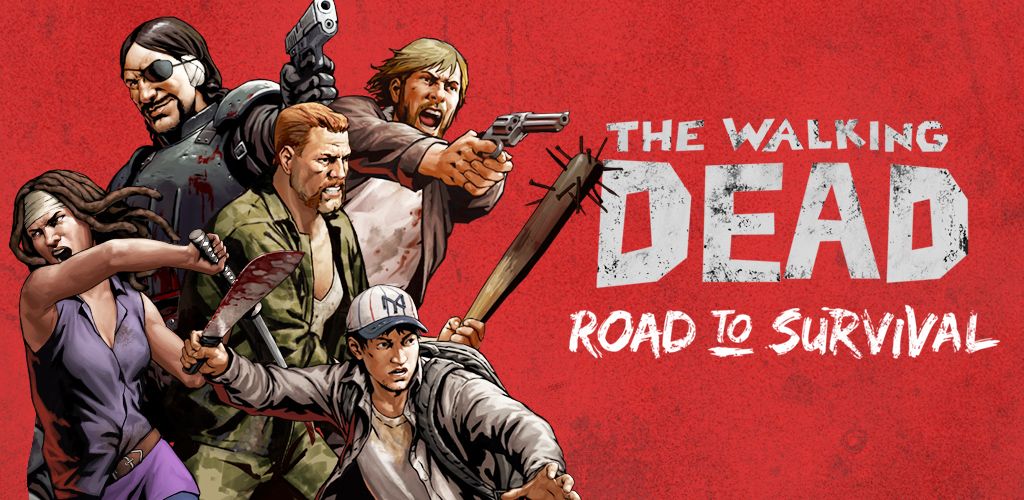Scopely has been experience rapid growth publishing hit mobile games like Walking Dead: Road to Survival — Inc. Magazine named Scopely the sixth fastest-growing private company in California and ninth fastest-growing in the U.S. That growth has led Scopely to expand the management team. Financial technology veteran Steve Seoane has joined the team as SVP, Publishing Platform, bringing with him years of experience at large data-driven B2C companies including Capital One, LexisNexis Risk Solutions and LifeLock. Seoane will oversee the company’s analytics program to evolve the platform and utilize all data from its millions of users around the world to ensure the success of future titles. Seoane spoke with [a]listdaily about some of the complex issues ahead for Scopely and Seoane.
 Steve Seoane
Steve Seoane
Your previous experience dealt with Big Data, but not in games. How do the challenges that Scopely’s user base present compare to what you’ve dealt with before
There are certainly some areas where the work I have done in the past is wholly applicable. The core challenges we face at Scopely are not dissimilar to those of any consumer product driven company. Questions like “How do we attract, convert, and engage consumers in a competitive environment” or “How do we deliver a personalized experience to millions of consumer that delights them on a consistent basis” These questions are core to all consumer product companies.
The consumers in gaming themselves are quite different in that they can be more fickle than in other industries and their switching costs are extremely low, particularly at the beginning of their game experience. This makes the stakes quite a lot higher at launch. The challenging paradox is that you have little information but have huge leverage at the launch phase of a game. This dynamic is one reason why publishers like Scopely add so much value to game studios and IP owners. The team we assembled have been a part of many of the most successful mobile games to-date and have backgrounds from gaming and entertainment companies ranging from Zynga, Kixeye, Storm8, GREE, EA and Kabam to Disney Interactive, Sony, Hulu and Warner Bros, amongst others. That incredible pool of talent has given us the tools, infrastructure and processes to specifically address launching and operating a game from inception, to execution and throughout the lifespan of the game.
There are also unique challenges and opportunities that are less about the players and more about the complexities encountered when you are essentially creating and managing whole digital worlds and economies. Many of the decisions we get to make are simply not possible in other industries. Where else do you get to create whole economies that are tailor-made for the experience you want the player to have To do this well, you have to use a whole range of analytical tools and techniques from diverse fields of study such as economics, behavioral economics, game theory and mathematical optimization. This can be as simple as basic heuristic segmentation and A/B testing to complex machine learning techniques like Support Vector Machines. This range of problems is quite appealing to decision scientists.
There’s been an ongoing discussion in the games industry about the proper balance between analytics and creativity when it comes to making games better. Obviously analytics can make a game better by showing you problem areas, but are there times when creativity should overrule data Is there a place where that line should be drawn, or is that something still to be determined
Definitely. Games at their core have to be fun and while there certainly are ways to structure games to deliver “fun,” it is a balance of creativity and data-driven approaches that result in the best experiences. One place where I have seen this combination unlock lots of value is when you need to move from one local optima to a higher global optimum within a product’s usage. We often don’t have data to envision and jump from one local optima to a second higher optima. In fact, often times the data-driven optimization work companies do to maximize near-term value keeps you from seeing the possibilities of a step change in the game. It takes judgment and experience to see these opportunities. One thing that was so appealing about Scopely was the deep bench of industry expertise that Walter and the team have accumulated.

Ethical game design is a hot topic in the industry and rightfully so. As far as where or even how to draw the line, I think of two guiding principles to this problem. The first principle I think of is channeling Warren Buffett who although is notoriously tech-phobic, does preach good common sense values like building businesses for the long term and treating your customers (players in our case) the way you would like to be treated. It turns out that building games that exploit customers is just not good for business. Building brands and businesses is about trust and respect in addition to fun. Great game teams and IP owners know this intuitively. The second principle I focus on is that the player gets to decide what their experience is like. It is our job to let them build their own personalized experience but not force them down a path. We use data and design to allow a customer to build a very personalized experience within our games.
Do you see a role for predictive analytics in helping Scopely choose which projects to pursue, or in shaping what features games may have as they are being designed In other words, what role should predictive analytics play at the beginning of the game design process
Yes, I do see a role at the conception phase. The data available is obviously quite different and therefore the tools used at this phase are very different “analytics” than people typically associate with data science. You aren’t going to use a boosting algorithm or something along those lines at this stage because you don’t have the outcome data to train your models. Market sizing work, evaluation of consumer and design trends, competitive analysis, financial modeling of economic drivers within game genres lead to an understanding of what items are critical to the success of a project. That of course leads to key design decisions early in the thinking of game construction. Applying the appropriate rigor is key to reducing the likelihood of bad outcomes. One thing that appealed to me about Scopely is the track record of doing this well. With the wildly successful launch of Walking Dead: The Road to Survival, which saw 4M downloads in a week and was listed in the Top 25 Grossing Chart you see the benefit of this competency at Scopely. The team here has a great track record with 6 consecutive #1 game launches and that doesn’t happen without some solid rigor.
What’s the biggest challenge facing you as you move into the games industry, and what’s the biggest opportunity
Without question, my biggest challenge is learning the industry. It is a big, rapidly changing, and complex space and I am lucky to have amazing resources at Scopely to allow me to rapidly come up the learning curve. I would also say, that the learning process is one of the things that appealed to me the most about Scopely. I am a naturally very curious and the chance to immerse myself in learning this space was a big selling point to me.
I think the biggest opportunity to me is bringing an outsider’s perspective into the industry and into Scopely. I spent the last 15 years in Fintech, consumer credit, fraud, and identity working with some of the biggest and most successful brands in the world in hyper-competitive markets. There is a deep expertise in applying both internal and third party data that I developed during that time and I hope to bring that to Scopely as we continue to deliver world-class analytics and data tools that allow game studios and IP owners to build amazing games that consumers worldwide love to play every day.
What’s your favorite game right now, and what type of games do you tend to prefer
Well, obviously Walking Dead: Road to Survival and Yahtzee with Buddies are my favorites!
But if I had to pick one other than our games, I would say that I have to pick two. The first is Clash of Clans because my kids play it. I have four kids and the older two are avid gamers. It is fun to participate with them in something that they love and the social connection you can get through play is a unique chance to connect as peers in a game rather than as the authority figure. It is humbling to get crushed by your nine-year-old son or your thirteen-year-old daughter!
If I am playing alone, I prefer casual games like WordBrain. I am super busy so a chance to quickly pick up a puzzle and solve it in between meetings or in line at the airport is like mind candy to me.

